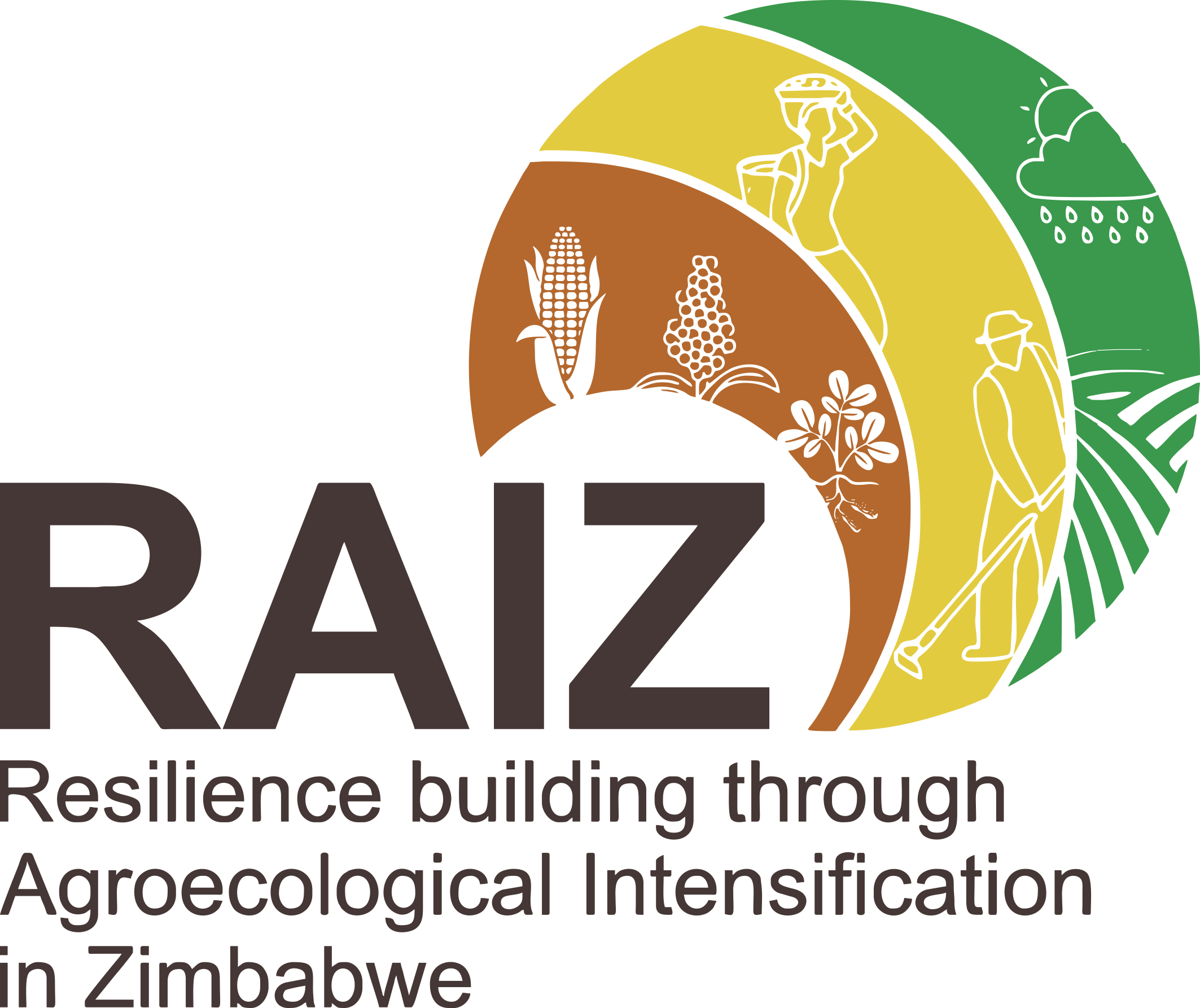New Agroecology Initiative to Catalyse Resilient Agrifood Systems in Zimbabwe
Partners of a new resilience building initiative in Zimbabwe held a launch meeting in Harare on 7 October, 2022, gathering 80 participants, including national agricultural extension programmes, government representatives, academic institutions, government representatives, private sector actors, the media, EU representatives and national agricultural research and development organisations.
Entitled ‘’Resilience Building through Agroecological Intensification in Zimbabwe (RAIZ),’’ the initiative aims to support climate-smart agriculture and livelihoods in three districts in Zimbabwe. These include Murehwa, Mutoko and Mudzi in Mashonaland East province. The project aims to help thousands of smallholder farmers intensify, diversify and de-risk maize-mixed farming through improved extension services, institutional capacity building, targeted farm management bundles, policy support, enterprise development and private investment,
The launch brought together partners and other main stakeholders to get to know each other, understand the project better (including gender and social inclusion, capacity strengthening and learning).
Participants at the RAIZ project launch meeting in Harare, Zimbabwe.
The RAIZ project is a EUR4 million four-year project funded by the European Union (EU) and the French Agricultural Research Centre for International Development (CIRAD) that supports the government-led transformation of the agricultural sector by providing scientific evidence and experience for the design of Climate Smart Agriculture (CSA) interventions. The project will focus on protecting the environment and reducing greenhouse gas emissions for a greener and more resilient Zimbabwe. Besides CIRAD, the other RAIZ project partners are the International Maize and Wheat Improvement Center (CIMMYT) and the University of Zimbabwe,
Prof Obert Jiri, Chief Director responsible for agricultural advisory services in the Ministry of Lands, Agriculture, Water, Fisheries and Rural Development, said he is excited to be part of the launch. “This is a very important project for the country. The project will help to strengthen the country’s resilience to climate shocks. It will also help us to bounce back better on issues of resilience,” he said. The Government, through the project’s research work, can learn a lot from the initiative to respond to the changing times. Prof Jiri supported the project’s partnership with academic and research institutions such as the University of Zimbabwe and CIMMYT). Similarly CiMMYT Cropping Systems Agronomist, Dr Isaiah Nyagumbo stressed the need not to re-invent the wheel but work with partners who already have the capacity to advance the policy agenda for diversification and sustainable intensification.
What were key issues presented and discussed?
One of the features of RAIZ is the use of ‘’living labs’’ and innovation platforms. These will provide opportunities for exchange and learning with partners and stakeholders across all the project initiatives in the country. Innovative multi-media platforms will be used to change knowledge, attitudes and practices of thousands of farmers in the implementation districts.
The initiative will start by working with partners and stakeholders to assess the food and nutritional challenges in the three districts, and tackle them by bringing in innovative solutions.
Dr Jean Marc Bouvet, CIRAD Regional Director for Southern Africa and Madagascar, said, ‘’The time has come for the project implementers to move away from globally-initiated to country-initiated development actions’’, he said. ‘’This is what RAIZ is all about.’’
Addressing participants at the launch event, Head of Cooperation in the Delegation of the EU in Zimbabwe, Mr Franck Porte, said the EU was committed to supporting Zimbabwe’s efforts to boost agricultural production in a way that increased resilience and reduced greenhouse gas emissions. “The EU fully supports the efforts of the Government of Zimbabwe to ‘climate — proof’ its agricultural sector. The RAIZ project is illustrative of this point,’’’said Porte.
